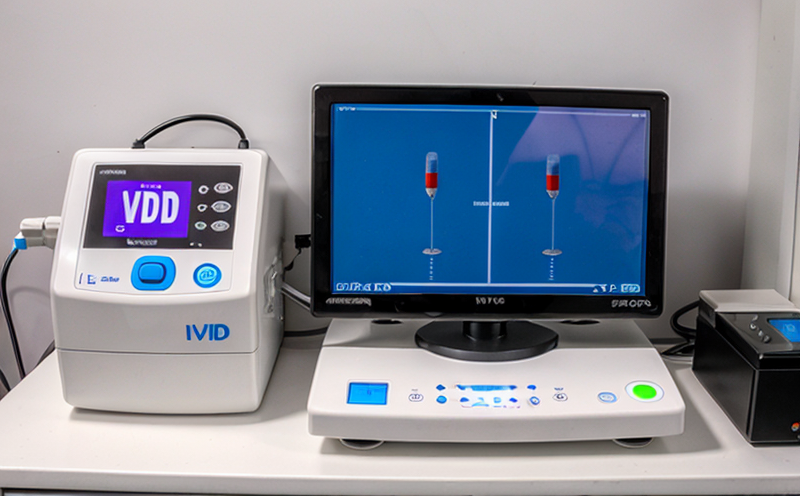ISO 20776-3 Disk Diffusion Susceptibility Testing Systems Validation
The ISO 20776 series of standards provides a comprehensive approach to validating the performance of disk diffusion susceptibility testing systems, which are critical for characterizing antimicrobial activity and guiding clinical management decisions. This section focuses on ISO 20776-3: Determination of sensitivity of microorganisms to antibacterial agents by the disk-diffusion method, which is pivotal in ensuring that medical devices used in vitro diagnostic (IVD) systems are accurate, reliable, and consistent.
The disk diffusion test involves placing a disk impregnated with an antimicrobial agent on an agar plate inoculated with microorganisms. After incubation, the diameter of the inhibition zone around each disk is measured to determine the sensitivity or resistance of the organism to the tested agent. This method is widely used in clinical laboratories for quality assurance and regulatory compliance.
Validation according to ISO 20776-3 ensures that the susceptibility testing system meets specific performance criteria, including reproducibility, repeatability, and precision. It also provides a framework for assessing the impact of various factors such as inoculum size, incubation time, and environmental conditions on test outcomes.
The validation process typically involves several steps:
- Selection of Reference Strains: Commonly used reference strains include E. coli ATCC 25922, S. aureus ATCC 25923, and others, which are well-characterized for their susceptibility profiles.
- Inoculum Preparation: The microorganisms must be grown on an appropriate nutrient medium before being used to inoculate the agar plates.
- Assessment of Inhibition Zones: The diameter of inhibition zones around each disk is measured and compared against established reference values for the specific antimicrobial agent.
- Data Analysis: Statistical analysis is performed to ensure that the system meets the required performance criteria, including reproducibility within a single laboratory and between laboratories.
Compliance with ISO 20776-3 is essential for ensuring that susceptibility testing systems are accurate and reliable, which directly impacts patient safety and treatment efficacy. By validating these systems according to this standard, manufacturers and healthcare providers can have confidence in the results generated by their IVD devices.
Why It Matters
The importance of accurate and reliable susceptibility testing cannot be overstated. Misdiagnosis or inappropriate treatment due to errors in these tests can have serious consequences for patients, including the development of antibiotic resistance and increased mortality rates. ISO 20776-3 provides a robust framework for ensuring that disk diffusion systems meet stringent performance criteria.
By validating susceptibility testing systems according to this standard, medical device manufacturers and healthcare providers can:
- Ensure consistent results across different laboratories
- Minimize the risk of false positives or negatives
- Facilitate regulatory compliance with international standards
- Improve patient safety by reducing the likelihood of treatment failure
The use of validated systems also enhances the credibility and reputation of medical device manufacturers, as it demonstrates a commitment to quality and accuracy.
In addition, adherence to ISO 20776-3 can reduce costs associated with retesting or incorrect treatments, ultimately leading to more efficient healthcare delivery.
Benefits
The benefits of validating susceptibility testing systems according to ISO 20776-3 are multifaceted:
- Enhanced Accuracy and Reliability: Ensures that the results generated by IVD devices are accurate, reliable, and consistent.
- Improved Patient Safety: Reduces the risk of treatment failure and the development of antibiotic resistance.
- Regulatory Compliance: Facilitates compliance with international standards, ensuring that medical devices meet stringent quality requirements.
- Increased Credibility: Demonstrates a commitment to quality and accuracy, enhancing the reputation of manufacturers and healthcare providers.
- Cost Efficiency: Reduces costs associated with retesting or incorrect treatments, leading to more efficient healthcare delivery.
The implementation of validated systems also supports evidence-based decision-making in clinical settings, ultimately improving patient outcomes.
Why Choose This Test
- International Recognition: ISO 20776-3 is widely recognized and accepted by regulatory bodies worldwide, ensuring global compatibility.
- Comprehensive Framework: Provides a robust framework for validating susceptibility testing systems, covering all critical aspects of the process.
- Data Integrity: Ensures data integrity through rigorous validation protocols, reducing the risk of errors and inconsistencies.
- Scientific Rigor: Utilizes scientifically validated methods to assess system performance, ensuring high-quality results.
- Cost-Effective: Long-term cost savings are achieved by minimizing errors and rework associated with non-compliant systems.
- Expert Support: Our team of experienced professionals provides expert guidance throughout the validation process, ensuring a smooth implementation.
The combination of these factors makes ISO 20776-3 disk diffusion susceptibility testing an ideal choice for validating IVD devices in medical settings.





